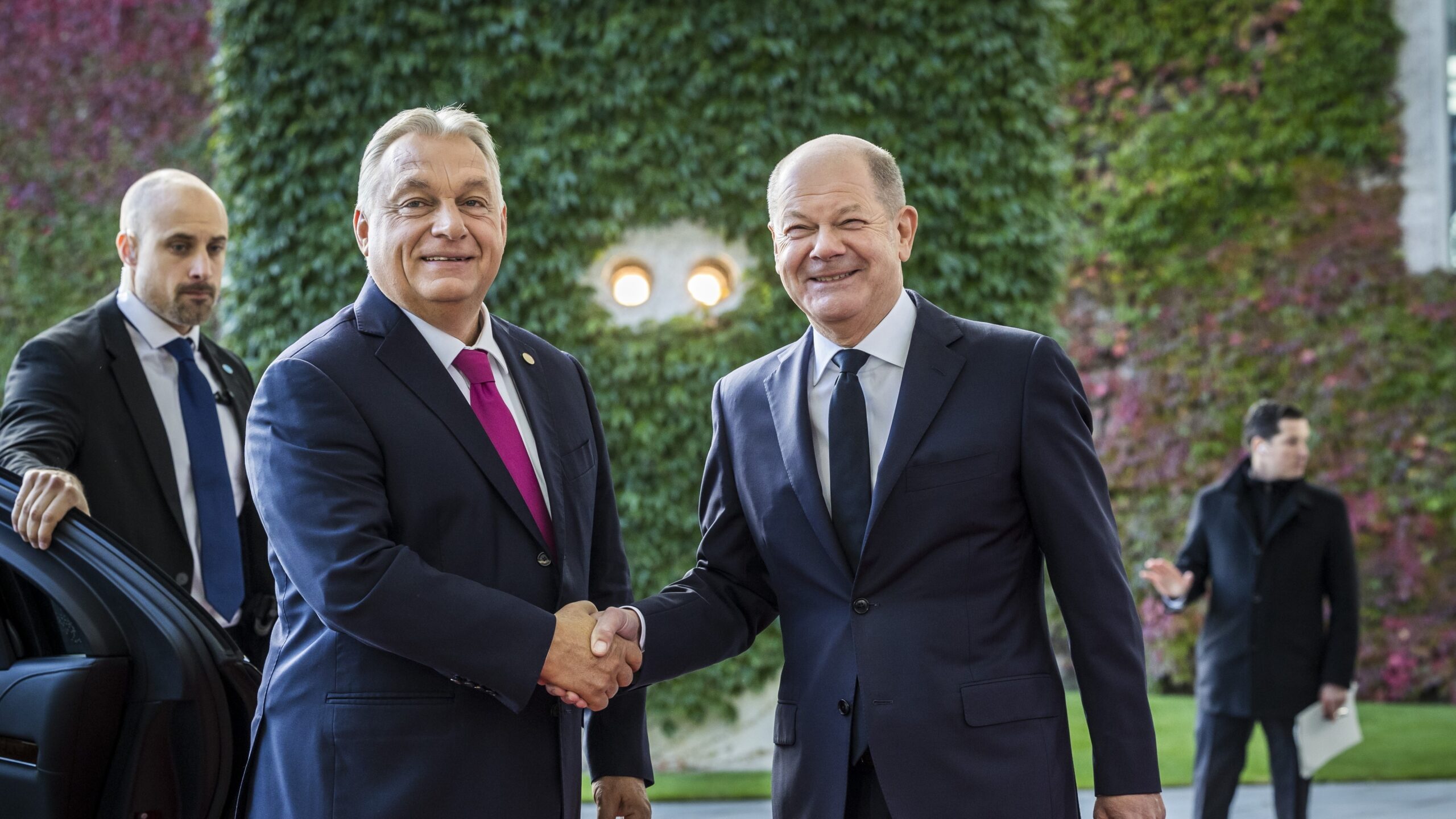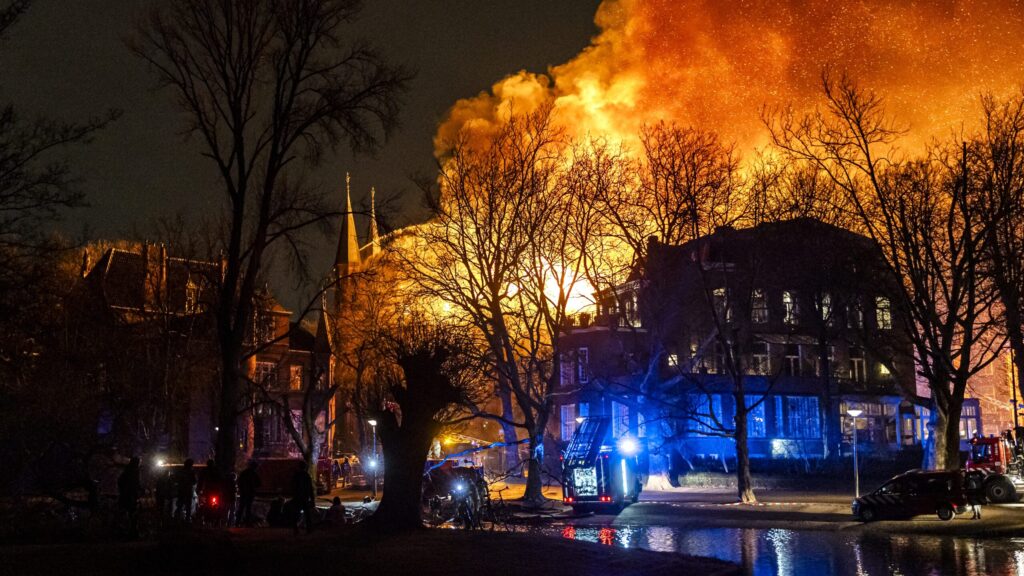On Monday, 14 October, Viktor Orbán travelled to Germany for the Berlin Process summit. While there, he also had a one-on-one meeting with Chancellor Olaf Scholz—a resounding rebuttal of EPP President Manfred Weber’s recent claim that Hungary is ‘isolated’ and ‘nobody’ talks to the Hungarian government.
The Hungarian prime minister reported on his trip on social media, noting that a busy day awaited him in the German capital: first, the Berlin Process summit, which celebrated the 10th anniversary of the so-called Berlin process, and before that, a meeting with Chancellor Scholz, followed by an interview.
Orbán Viktor on X (formerly Twitter): “Berlin Process Summit, meeting with @Bundeskanzler Olaf Scholz. Another item on @ManfredWeber’s list of nobodies 😎 pic.twitter.com/7ydqi1GaKM / X”
Berlin Process Summit, meeting with @Bundeskanzler Olaf Scholz. Another item on @ManfredWeber’s list of nobodies 😎 pic.twitter.com/7ydqi1GaKM
Olaf Scholz and Viktor Orbán met in the morning on Monday. No details of the meetings have been revealed, but the welcome of the Hungarian head of government was clearly cordial.
The Berlin Process was launched by Germany in 2014 with the aim of strengthening cooperation between the countries of the Western Balkan region, facilitating EU enlargement, maintaining the momentum of the integration process, and countering the growing Euroscepticism in the region. While in Berlin, the Hungarian Prime Minister also conducted other bilateral talks with the leaders of several states.
Hungary’s Isolation Continues?
In light of these diplomatic events, it is worth recalling last Wednesday’s debate in the European Parliament in Strasbourg. Manfred Weber, President of the European People’s Party, among other things, accused Viktor Orbán of Hungary’s isolation, stating that no one wants to meet with the Hungarian government, and no one is visiting Budapest. According to Weber, Hungary stands alone, on the periphery.
Manfred Weber on X (formerly Twitter): “Hungarians deserve a strong voice in Europe. Prime Minister Orbán, you are the past; Peter Magyar and the TISZA friends are the future! pic.twitter.com/czzPlK2HTG / X”
Hungarians deserve a strong voice in Europe. Prime Minister Orbán, you are the past; Peter Magyar and the TISZA friends are the future! pic.twitter.com/czzPlK2HTG
The Hungarian Prime Minister responded firmly to these remarks, factually refuting Manfred Weber’s claim that no one meets with the Hungarian government. ‘You claim this, which is a grave insult to those who have done so. Because according to you, they are nobodies. The German chancellor, the French president, the Italian prime minister—they are the nobodies according to you. You are ignoring reality,’ he stated.
Orbán Viktor on X (formerly Twitter): “Yesterday, @ManfredWeber took a particularly hostile stance during the debate. We all know why. He wanted to become President of the @EU_Commission, but failed because he couldn’t get the support of the V4. He still blames me, but there’s nothing I can do about it 🤷♂️ It’s time to… pic.twitter.com/NQHewbrtRr / X”
Yesterday, @ManfredWeber took a particularly hostile stance during the debate. We all know why. He wanted to become President of the @EU_Commission, but failed because he couldn’t get the support of the V4. He still blames me, but there’s nothing I can do about it 🤷♂️ It’s time to… pic.twitter.com/NQHewbrtRr
Thus, Hungary’s isolation continued with yet another meeting with the German chancellor…
The Attacks Continue
Just yesterday the EPP once again attacked Orbán in a social media post, stating it was ‘time to go’.
EPP Group in the European Parliament
It’s time to bring Hungary back closer to Europe and give it a chance to recover from the consequences of poor leadership. It’s time for Viktor Orbán to leave. #Hungary #orban
Several Hungarian politicians have responded to the insult. Government Commissioner in charge of international communication Zoltán Kovács said: ‘Once again, they want to dictate from abroad what kind of government Hungary should have.’
Kovács Zoltán
Újra külföldről akarják megmondani, milyen kormánya legyen Magyarországnak. Arról, hogy mi történjen Magyarországon, a magyar emberek döntenek, nem pedig Manfred Weber és az Európai Néppárt!
‘The decisions about what happens in Hungary are made by the Hungarian people, not by Manfred Weber and the European People’s Party,’ he emphasized in his Tuesday morning post.
In a similar post, Tamás Menczer, Communications Director for Fidesz-KDNP, declared: ‘Manfred Weber wants to dictate, the chief supporter of migration and war.’ Tamás Menczer also mentioned Péter Magyar in his reaction, citing the opposition leader as having said Hungary ‘needs to give up some of its sovereignty’.
Menczer Tamás
Újra külföldről akarják megmondani, milyen kormánya legyen Magyarországnak❗️ Manfred Weber akar diktálni, aki a migráció és a háború legfőbb támogatója. Tegnap Magyar Péter elmondta, mi Weber…
‘Yesterday, Péter Magyar explained the price of Weber’s support! It means giving up national sovereignty! That is, allowing migrants in, joining the pro-war camp, abolishing taxes paid by multinationals, ending the utility cost reductions, and taking away the 13th-month pension,’ he outlined, adding that only Hungarians can decide for Hungary, and announced that a national consultation will be launched to assess how people feel about national sovereignty.
Lőrinc Nacsa, MP for KDNP, also responded. He commented under the EPP’s controversial post, which he then quoted verbatim on Facebook. Along with his colleagues, he believes that the EPP ‘wants to interfere in Hungary’s elections.’
Nacsa Lőrinc
Az EPP ismét átlépett egy határt. Válaszoltam nekik: “Tudjuk, hogy az EPP be akar avatkozni a magyarországi választásokba, de legutóbbi ismereteim szerint nem rajtatok múlik, hogy ki vezeti az…
‘With Péter Magyar, you are supporting someone who is accused of stealing a phone, who secretly recorded his wife’s statements to use them for his own purposes later, and who casually quotes Hit*er,’ he informed the party family.
Ever since the recent Strasbourg debate, the conflict between the EPP and Viktor Orbán does not seem to be losing heat. The EPP is clearly more interested in undermining the Hungarian EU presidency and the democratically Hungarian government than engaging in constructive cooperation for the sake of the European Union.
Related articles:







